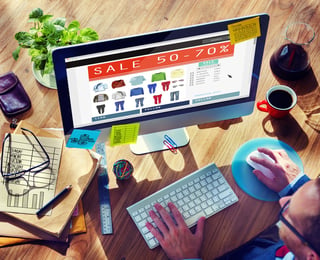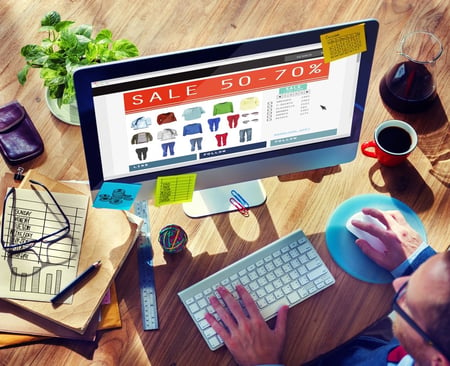It should come to no surprise that as technology changes and improves, digital marketers scramble to make use of that technology to benefit their brands. One of the areas in which this becomes the most clear is the eCom merce and retail industry. As people become more and more attached to their mobile devices, the retail industry has made major moves to take advantage of this. Here’s just a few of the ways that this is happening:
merce and retail industry. As people become more and more attached to their mobile devices, the retail industry has made major moves to take advantage of this. Here’s just a few of the ways that this is happening:
Micro-Moment Marketing
We’ve discussed micro-moments and their growing influence in marketing recently already. Micro-moments happen any time a consumer grabs her or his phone to pass the time, buy something, or look something up. Retail brands are working to get in front of consumers during these micro-moments, and turn each moment into a point-of-sale. They key to this is to assess intent (“what does the consumer want to get out of this moment?”), instead of relying solely on demographic-based targeting. Then, the brand can send the appropriate push notification or alert. According to new research from Google, this type of marketing will reach more more potential mobile shoppers than demographic targeting alone.
On-Site Personalization
Personalization, like the use of Smart Content, is key to successful marketing. In fact, 73% of consumers prefer to do business with brands that personalize their shopping experiences and a solid 86% say personalization plays a role in their buying decisions. Many brands like Amazon, already do this in their email campaigns, and that number will expand in 2016. For retail and eCommerce, the avenues to implement on-site personalization is virtually limitless. It could be in the form of a personal shopping assistant on the website, segmented email lists with certain styles being promoted, or a "find your style" guide with recommendations based on previous activity  and preferences. Of course, all of these ways to personalize a shopper's experience will be mobile-optimized.
and preferences. Of course, all of these ways to personalize a shopper's experience will be mobile-optimized.
Beacon-Based Offers
Beacon technology, which uses wifi technology to know exactly who is near a place of business, has surged ahead this year, and you can expect it to be basically mainstream in 2016. Beacons allow brands to detect where a customer is at any given moment, and then send them push notifications with sales promotions. You can see how this would be hugely beneficial to brick-and-mortar retail stores. A store could send a coupon to a customer near their shop or while the individual is near a competitor business. These beacons will help provide the shift to mobile commerce by providing immediate relevancy and value to customers. At the beginning of 2015, it was predicted that beacons would drive $44 million in retail sales by 2016.
Americans spend an average of 4.7 hours on their smartphone each day and 41% of them check their phones multiple times an hour. Marketers are taking notice of this. If 2015 was the Year of Mobile, then 2016 will be the Year to Optimize Your Mobile Strategy. So, get started now! Begin developing your inbound marketing strategy, with a heavy emphasis on mobile, by downloading our free eBook The Beginner’s Guide to Inbound Marketing. With this book, you’ll be well on your way to staying at the forefront of digital marketing in 2016.





